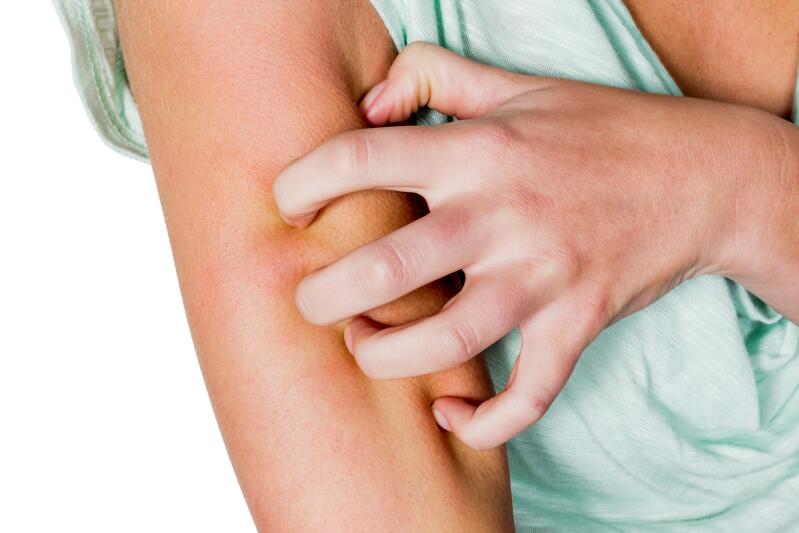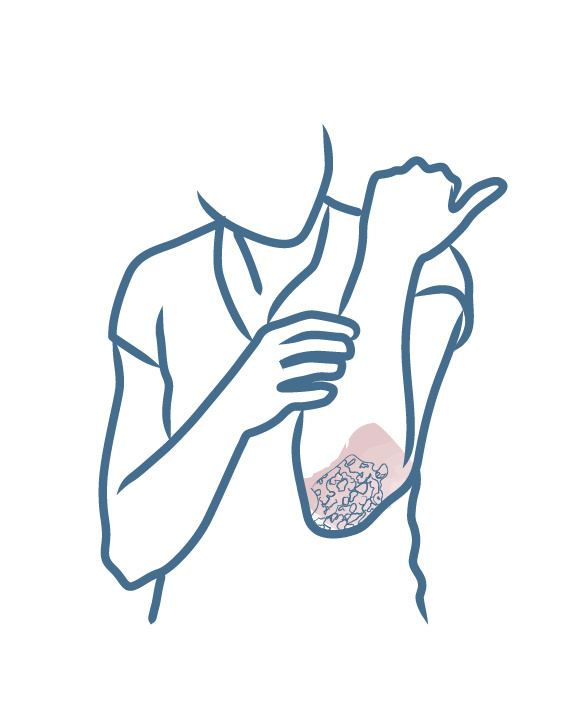-
Your concerns
Our articles to help you gain a better understanding
-
Our solutions
-
Ducray Dermatological laboratories
Our articles to help you gain a better understanding

The itching associated with eczema is common knowledge. But did you know that itching is also one of the main clinical signs of psoriasis?

Summary
With psoriasis, the urge to scratch the plaques and the skin around them is always there. Scratching offers quick relief but removes the white scales on the plaques, which should be left to fall off and heal naturally when the patient has recovered from the flare-up. Scratching takes you right back to the beginning. The plaque will take longer to heal, or might even get bigger. What's more, if your nails are long and not very clean, scratching can damage the skin, causing bleeding, scars or even superinfections.
But knowing all this does not stop patients from scratching, and experiencing severe sleeping difficulties and social problems, affecting relationships at work, or with friends, family or partners.
While on her computer at work, Emma can't help scratching her scalp but thick scabs fall onto her shoulders and she has to go to the bathroom several times a day to clean off her clothes.
Paul can't relax with his wife at a restaurant. All he wants to do is go home, scratch his arms to his heart's content and avoid other people staring. Other people see someone scratching and straightaway think it must be an infectious disease, and therefore, a contagious disease…
The itching associated with psoriasis is a symptom in its own right and has a major impact on patients' quality of life and self-esteem. Various treatments help to limit itching by targeting skin inflammation.
There are also several techniques that can prevent the urge to scratch:
You just need to find the method that works best for you!
Psoriasis-prone skin

Skin prone to stubborn dry plaques
NEWSLETTER
Dermatological expertise
To better understand your skin and hair, discover our exclusive content and innovative care products designed to improve your quality of life..